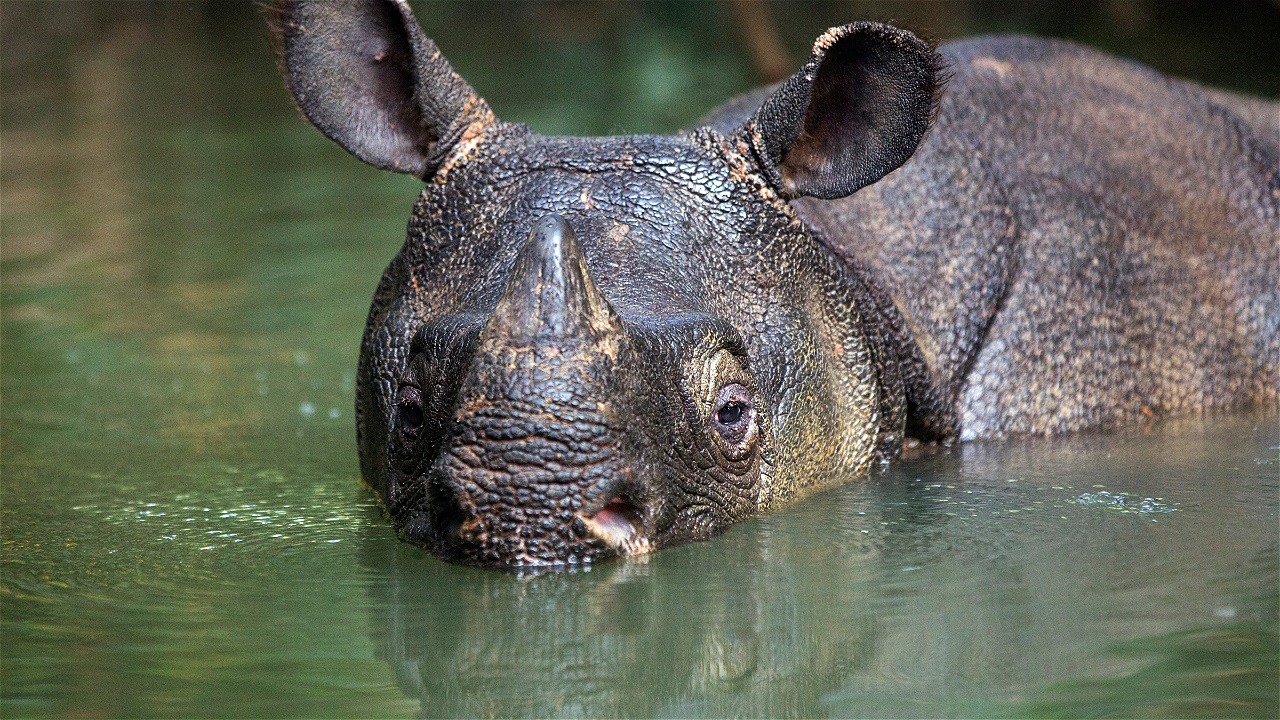INDICATIONS OF AN INCREASE IN THE JAVAN RHINO POPULATION WERE FOUND
Pandeglang, Banten- WWF-Indonesia welcomes the results of Javan rhino monitoring announced today (26/2) by Ujung Kulon National Park (TNUK) in Pandeglang, Banten. WWF-Indonesia has always supported the monitoring process carried out by the Balai TNUK with the aim of obtaining more accurate data on the Javan rhino population. The monitoring population data released today by the TNUK Center shows an indication of an increase in the Javan Rhino population from the previous year.
Anwar Purwoto, Director of Sumatra and Kalimantan Program said, "WWF-Indonesia appreciates the efforts made by Balai TNUK in managing the Javan rhino population and habitat so far so that there are indications of an increase in population. The data can be a reference for further management of Javan rhino population and habitat. This success will be the basis for the development of a second habitat (second habitat/second population) for Javan rhinos outside TNUK".
Given the geographical location of Indonesia which is often hit by natural disasters such as volcanic eruptions, earthquakes, tsunamis and others, it is immediately necessary to take further steps to save the Javan rhino. Given the geographical location of the Javan rhino's only habitat is currently vulnerable, it is feared that the population will be threatened and possibly even extinct due to natural disasters.
From the 1980s to 2010, WWF has conducted population surveys of Javan rhinos using camera traps (camera traps) together with the Balai TNUK. In 2012, WWF provided assistance in the form of 120 camera traps to the TNUK Center to improve monitoring of Javan Rhinos in TNUK. In 2013, WWF also provided operational support for 2 (two) Rhino Monitoring Unit teams. In addition to the number of individuals, population dynamics, rhino interactions with other animals and rhino behavior can be studied from the results of this monitoring.
"In the future, WWF is ready to help develop the methodology so that the accuracy of Javan Rhino population dynamics will be better," said Prof. Hadi Alikodra, Senior Advisor for Science Development of WWF-Indonesia. "In addition, to maintain and increase the number of Javan Rhino populations, the TNUK Center needs support from various parties to increase area security".
For more information, please contact:
- Elisabet Purastuti, Ujung Kulon Project Leader, WWF-Indonesia (epurastuti@wwf.or.id, +628121205394)
- Intan Agisti, Communications & Awareness Officer for Ujung Kulon Project, WWF-Indonesia (iagisti@wwf.or.id, +6281802666378)





